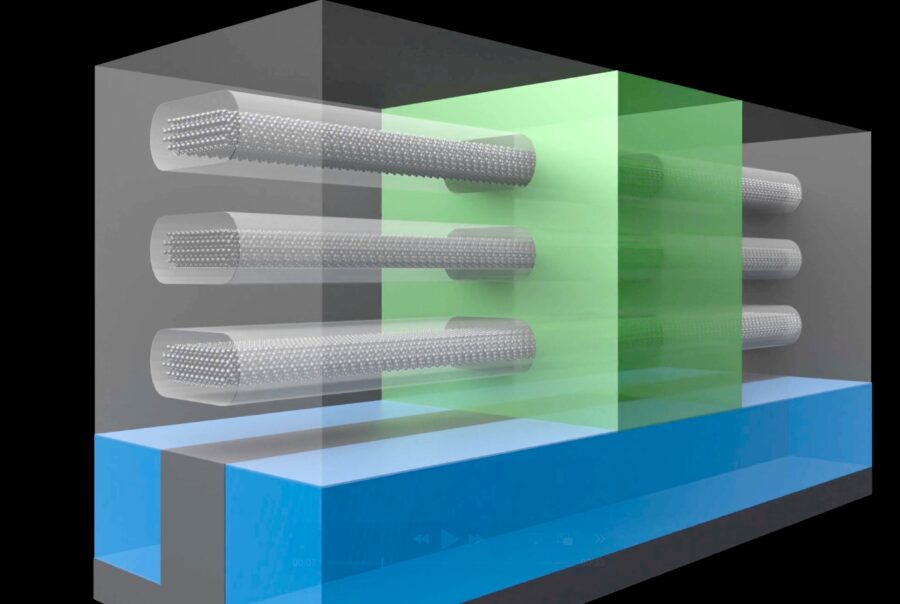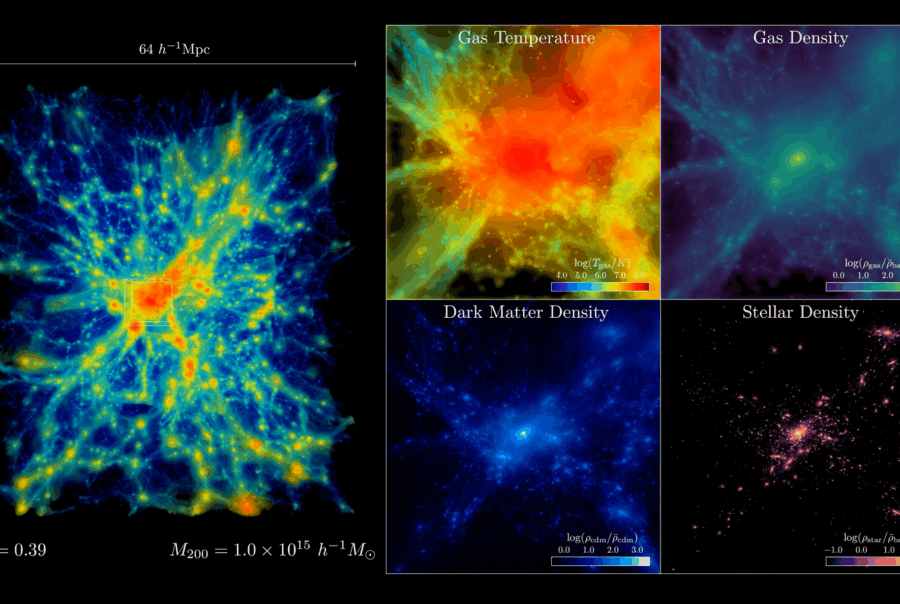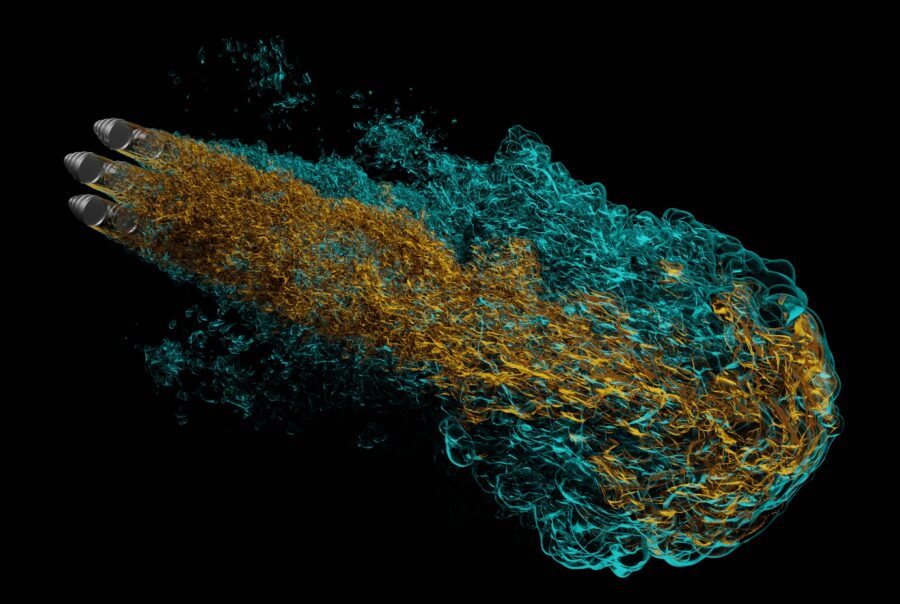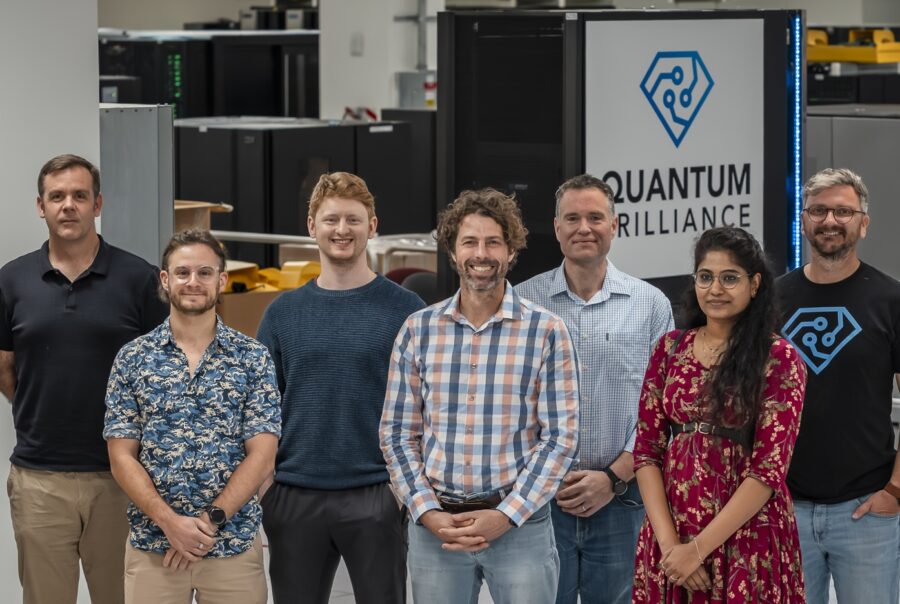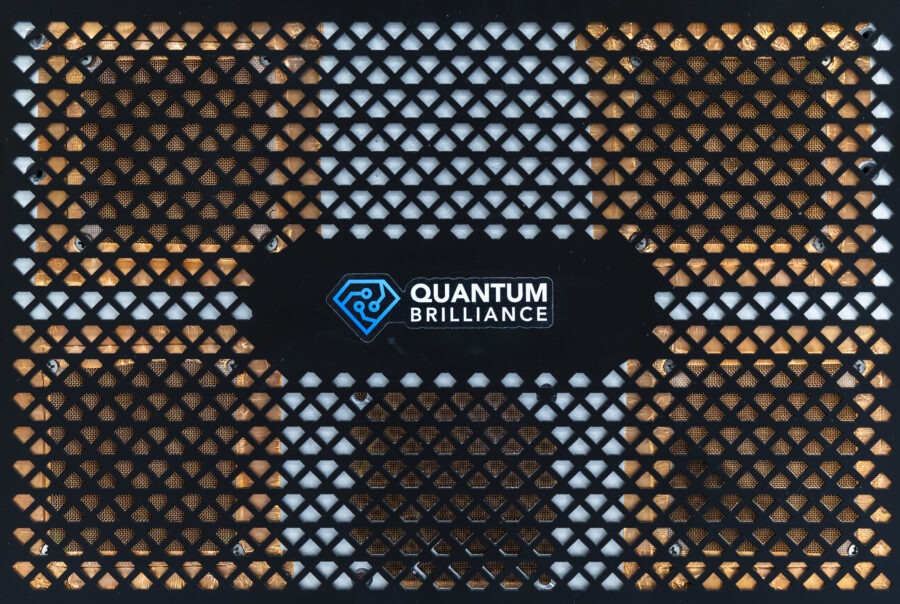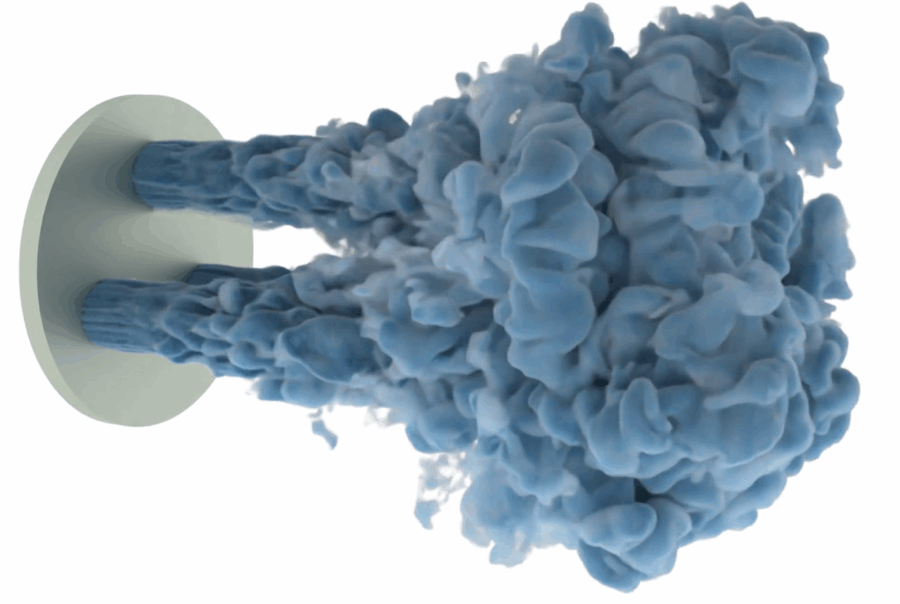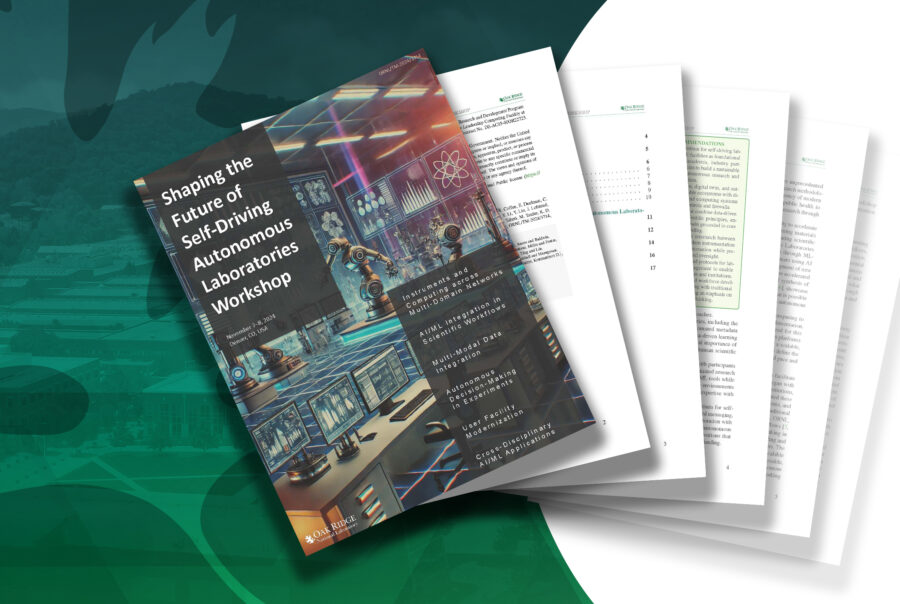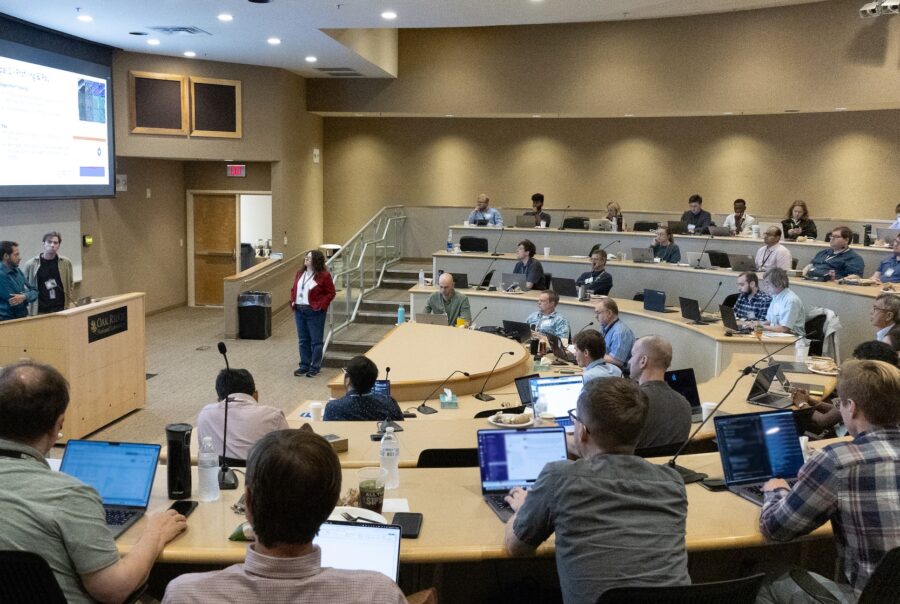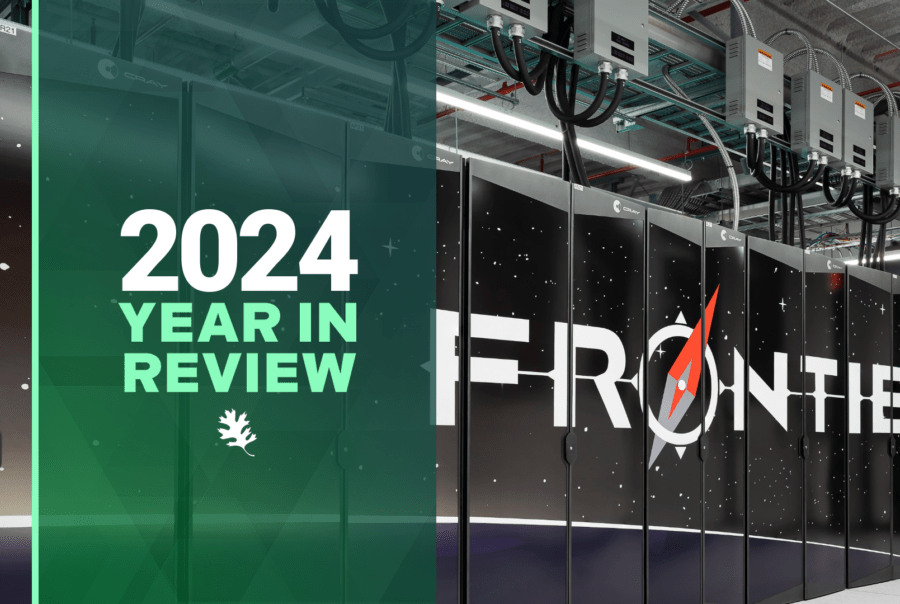Filter
The New Frontier of Fluid Turbulence Simulations: 35-Trillion Grid Points
Using the Frontier supercomputer at the Department of Energy’s Oak Ridge National Laboratory, researchers from the Georgia Institute of Technology have performed the largest direct numerical simulation (DNS) of turbulence in three dimensions, attaining a record resolution of 35 trillion grid points. Tackling such a complex problem required the exascale…
Frontier Supercomputer Simulates Next-Generation Transistors at Exascale
Researchers from the Swiss Federal Institute of Technology in Zurich, Switzerland (ETH Zurich) have developed a new framework to capture the quantum mechanical effects inherent in the designs of nanoscale electronic devices, such as next-generation transistors. The framework can provide semiconductor engineers with much more accurate insights through advanced modeling…
Largest-Ever Universe Simulation Up for Supercomputing’s Highest Prize
Last fall, as the finalists for the Association for Computing Machinery’s 2024 Gordon Bell Prize were waiting to hear their names called, researchers at the Department of Energy’s Argonne and Oak Ridge National Laboratories had just finished running the largest astrophysical simulation of the universe ever conducted — and now, it…
New CFD Methodology Supersizes Results
Using a new computational technique called information geometric regularization (IGR) researchers from the Georgia Institute of Technology and the Courant Institute of Mathematical Sciences at New York University conducted the largest-ever computational fluid dynamics (CFD) simulation of fluid flow on the Frontier supercomputer at the Department of Energy’s Oak Ridge…
Quantum Brilliance, ORNL Pioneer Quantum-Classical Hybrid Computing
The Department of Energy’s Oak Ridge National Laboratory, in partnership with technology company Quantum Brilliance, has made the first big steps in the advance of quantum computers for scientific discovery with the installation of a Quantum Brilliance computer system at the Oak Ridge Leadership Computing Facility. Lab staff will use…
Q&A: Inside Quantum Brilliance’s Quantum Computer Technology
With the installation of a Quantum Brilliance system in its Advanced Computing Ecosystem testbed, the Oak Ridge Leadership Computing Facility has an on-site quantum computer cluster for OLCF staff to explore how to integrate this emerging technology into classical high-performance computing, or HPC. While most experimental quantum computers demand extreme…
Shock Treatment for CFD Simulations
A team of researchers from the Georgia Institute of Technology conducted the largest-ever computational fluid dynamics, or CFD, simulation of high-speed compressible fluid flows. Using the Frontier supercomputer at the Department of Energy’s Oak Ridge National Laboratory, the team applied a new computational technique called information geometric regularization, or IGR.…
Getting the Matrix of Life Right
More than a year ago, computational scientists at the Department of Energy’s Oak Ridge National Laboratory published a study in the Journal of Chemical Theory and Computation that raised a serious question about a long-standing methodology used by researchers who conduct molecular dynamics simulations involving water. What if using the standard…
Quantum Computing Experiment Realizes Verifiably Random Number
Researchers used the unique capabilities of a quantum computer to generate a verifiably random number in a study published in the journal Nature. Even a workflow that included the world’s first exascale supercomputer couldn’t match the random quality of the quantum computer’s output. “All of us in today’s world use…
Quantum Study Seeks to Solve Questions on Fluid Flow
Researchers at the Department of Energy’s Oak Ridge National Laboratory tested a quantum computing approach to an old challenge: solving classical fluid dynamics problems. The study relied on support from the Quantum Computing User Program, or QCUP, part of ORNL’s Oak Ridge Leadership Computing Facility. The results highlight avenues for further study of quantum…
Scientists Lay Out Vision for AI-Based ‘Labs of the Future’
A workshop led by scientists at the Department of Energy’s Oak Ridge National Laboratory sketched a road map toward a longtime goal: development of autonomous, or self-driving, next-generation research laboratories. Scientists have dreamed for generations of high-tech laboratories operated via robotics at the push of a button. Recent advancements in artificial intelligence…
The OLCF’s Problem Busters
Professor Spencer Bryngelson and his team of researchers at Georgia Tech’s School of Computational Science and Engineering were excited to bring their code into the new world of exascale-class supercomputing. The Multicomponent Flow Code, or MFC, originated in the early 2000s to model the simultaneous movements of gases and liquids as they…
The OLCF’s 2024 in Review
High-performance computing pushed the boundaries of what’s possible in 2024, driving advancements across a range of disciplines. Partnerships with top academic, industrial and government institutions led to major contributions in fields such as quantum molecular mechanics and aviation. The year also saw groundbreaking research honored at leading conferences, underscoring the…
Summit Helps Veterans Affairs Connect Genetic Dots
To conduct a groundbreaking study of genetic data from more than half a million U.S. veterans, scientists needed tools of the kind found only at the Department of Energy’s Oak Ridge National Laboratory. "This particular study is probably the crown jewel of the field so far," said Ravi Madduri, a…
ORNL Researchers Honored with Award for Best Event Report
A research collaboration between the Department of Energy’s Oak Ridge National Laboratory and several partner institutions was honored with the Best Event Report award at the 2024 International Conference on Game Jams, Hackathons and Game Creation Events. The eighth annual conference for researchers, educators, professionals and event organizers in high-performance…



